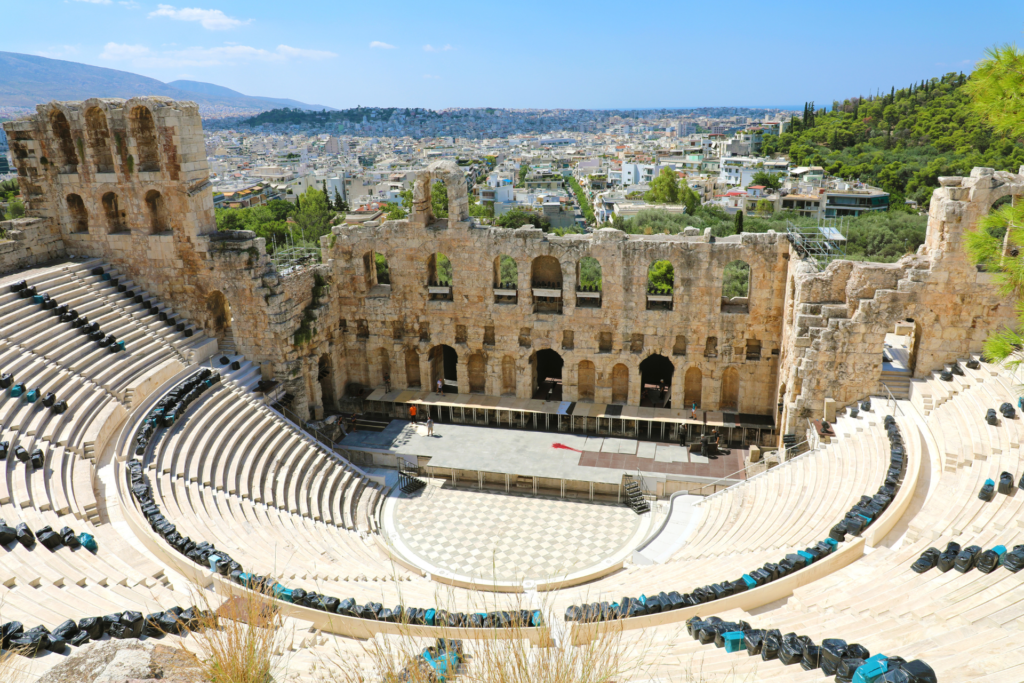Uncovering Ancient Greece: Athens and Beyond
Greece, with its rich history, breathtaking landscapes, and ancient ruins, is a top destination for travelers seeking both cultural immersion and natural beauty. At the heart of this fascinating country lies Athens, the cradle of Western civilization. But beyond the capital, Greece offers an abundance of ancient sites, islands, and treasures to explore. Here’s your guide to uncovering ancient Greece, starting with Athens and venturing beyond to some of the country’s most iconic landmarks.
1. Athens: The Heart of Ancient Greece
Athens, the capital of Greece, is a living museum, where ancient ruins stand side by side with modern life. It was here that democracy, philosophy, and the arts took shape, shaping the course of human history. The city is home to some of the most important archaeological sites in the world, many of which date back thousands of years.
a. The Acropolis: The Jewel of Athens
No visit to Athens is complete without a trip to the Acropolis, the ancient citadel that dominates the city skyline. At the top of the hill, you’ll find the magnificent Parthenon, a temple dedicated to the goddess Athena, symbolizing the power and wealth of ancient Athens. The Parthenon, with its stunning marble columns, is a masterpiece of ancient Greek architecture and a symbol of Western civilization.
Other notable structures at the Acropolis include the Temple of Athena Nike, the Erechtheion, and the Propylaea. Don’t forget to visit the Acropolis Museum at the foot of the hill, where you can view fascinating artifacts unearthed from the site.
b. The Ancient Agora: Where Philosophy Was Born
Just below the Acropolis, the Ancient Agora is another key archaeological site that offers a glimpse into daily life in ancient Athens. This was the center of public life, where Athenians gathered to discuss politics, philosophy, and religion. Famous philosophers like Socrates, Plato, and Aristotle are said to have debated here.
While exploring the site, you’ll encounter the Temple of Hephaestus, one of the best-preserved ancient Greek temples, and the Stoa of Attalos, which has been reconstructed and now houses a museum.
2. Delphi: The Oracle of Apollo
Located about two hours north of Athens, the ancient site of Delphi was considered the center of the world in ancient Greek mythology. Here, the famous Oracle of Delphi once resided, providing prophecies and guidance to leaders and common people alike. The site is set against the dramatic backdrop of Mount Parnassus and is one of Greece’s most significant archaeological sites.
At Delphi, you’ll see the Temple of Apollo, where the oracle delivered her cryptic prophecies, and the Theatre, where ancient Greeks gathered to watch performances. The Delphi Archaeological Museum houses a collection of artifacts, including the famous Charioteer of Delphi, a statue that dates back to the 5th century BC.
3. Olympia: Birthplace of the Olympic Games
For those interested in sports history, a visit to Olympia is a must. Situated in the western part of the Peloponnese, Olympia is the birthplace of the ancient Olympic Games, held in honor of the god Zeus. The first recorded Olympic Games took place in 776 BC, and the site has since become a symbol of athletic prowess and global unity.
The Temple of Zeus, which once housed the statue of Zeus (one of the Seven Wonders of the Ancient World), is the highlight of the site. You can also explore the Ancient Stadium, where the first Olympic athletes competed, as well as the Archaeological Museum of Olympia, which showcases fascinating artifacts from the site.



4. Mycenae: The Legendary City of King Agamemnon
Located in the northeastern Peloponnese, Mycenae is an ancient city that was once the center of the powerful Mycenaean civilization. This UNESCO World Heritage site is famous for its impressive ruins, including the Lion Gate, the monumental entrance to the city, and the Treasury of Atreus, a beehive-shaped tomb built for a royal family.
Mycenae is also connected to Greek mythology, as it is believed to be the home of King Agamemnon, who led the Greeks in the Trojan War. Visitors can explore the site’s ancient palace, the remains of the city walls, and the Archaeological Museum of Mycenae, which displays artifacts from this fascinating civilization.
5. Santorini: The Legacy of Ancient Thira
Beyond the mainland, Greece’s islands hold their own ancient treasures. Santorini, one of the most famous Greek islands, is not only known for its stunning sunsets and white-washed buildings but also for its rich archaeological history. The ancient city of Thira, located on the island’s slopes, offers a fascinating glimpse into the island’s past.
Thira was once a thriving city, and its ruins include houses, public buildings, and temples. The most famous site on the island is Akrotiri, a Minoan Bronze Age settlement that was buried by a volcanic eruption around 1600 BC. The well-preserved ruins of Akrotiri, with its frescoes, pottery, and ancient buildings, offer a unique look into life during the Minoan period.
6. Crete: The Minoan Civilization
Crete, Greece’s largest island, is home to the ancient Minoan civilization, one of the earliest advanced cultures in Europe. The Palace of Knossos, near Heraklion, is the most famous archaeological site on the island and was the center of Minoan power and culture. The palace complex is a maze of rooms, courtyards, and frescoes that give visitors insight into the Minoan way of life.
Crete also offers other ancient sites, such as the ruins of Phaistos and Margarites, as well as charming villages and beautiful beaches. The island’s rich history and stunning landscapes make it a must-visit for those interested in ancient Greek culture.
7. Rhodes: The Colossus and Medieval Charm
Rhodes, an island in the southeastern Aegean Sea, is steeped in both ancient and medieval history. The island’s most famous ancient landmark was the Colossus of Rhodes, a giant statue of the sun god Helios that stood at the entrance to the harbor and was considered one of the Seven Wonders of the Ancient World. Although the statue no longer exists, the site remains an iconic symbol of ancient Rhodes.
Today, visitors can explore the Ancient Acropolis of Rhodes, which offers stunning views of the island, as well as the medieval Old Town of Rhodes, a UNESCO World Heritage site that features cobbled streets, medieval fortifications, and historic buildings.
Conclusion
Ancient Greece is a land of myths, legends, and timeless beauty. From the ruins of Athens to the temples of Delphi and the Olympic history of Olympia, Greece offers travelers a chance to walk in the footsteps of ancient philosophers, warriors, and gods. Whether you’re exploring the heart of the ancient world in Athens or discovering hidden gems on Greece’s islands, the country’s ancient heritage will leave you in awe. So, pack your bags and embark on a journey through history to uncover the wonders of ancient Greece.








